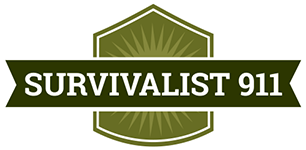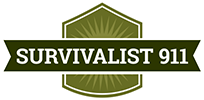As the 2025 Atlantic hurricane season approaches with the kickoff of National Hurricane Preparedness Week, residents in hurricane-prone areas, especially along the Gulf Coast, must prioritize preparedness. With forecasts indicating an above-average season, being equipped and informed is essential to safeguard lives and property. Our Hurricane Preparedness Guide 2025 provides forecasts, supply lists, as well as safety tips.
🌀 2025 Atlantic Hurricane Season Overview
📅 Hurricane Season Dates
The Atlantic hurricane season officially spans from June 1 to November 30, with peak activity typically occurring between August and October.
🔮 Hurricane Forecast Predictions
Multiple meteorological organizations have released their predictions for the 2025 season:
- Colorado State University (CSU): Predicts 17 named storms, 9 hurricanes, and 4 major hurricanes (Category 3 or higher). This forecast exceeds the historical average of 14 named storms, 7 hurricanes, and 3 major hurricanes.
- North Carolina State University (NCSU): Projects an “active” season with 15–20 named storms, 10–12 hurricanes, and 3–4 major hurricanes.
- Tropical Storm Risk (TSR): Foresees a near-average season with 14 named storms, 7 hurricanes, and 3 major hurricanes.
Factors influencing these predictions include warmer-than-average sea surface temperatures in the Atlantic and the potential development of La Niña conditions, which can reduce wind shear and promote hurricane formation.
✅ Printable Hurricane Preparedness Checklist in PDF & Excel
Printable Hurricane Preparedness Checklist 2025 in PDF Format
Printable Hurricane Preparedness Checklist 2025 in Microsoft Excel Format
🏠 Home Hurricane Preparedness Kit
Ensuring your home is equipped with essential supplies can make a significant difference during and after a hurricane.
Essential Supplies:
- Water: One gallon per person per day for at least three days.
- Non-perishable Food: A minimum three-day supply.
- Battery-powered or Hand-crank Radio: Preferably with NOAA Weather Radio capability.
- Flashlights: With extra batteries.
- First Aid Kit: Include necessary medications.
- Multi-purpose Tool: Such as a Swiss Army knife.
- Personal Hygiene Items: Moist towelettes, garbage bags, and plastic ties.
- Important Documents: Copies of insurance policies, identification, and bank account records in a waterproof container.
- Chargers: For cell phones and other essential electronics.
- Cash: In small denominations.
- Local Maps: In case GPS is unavailable.
- Emergency Contact Information: Written down and easily accessible.
- Fire Extinguisher: Ensure it’s up to date.
- Blankets or Sleeping Bags: For each person.
- Whistle: To signal for help.
- Dust Masks: To help filter contaminated air.
- Plastic Sheeting and Duct Tape: To shelter in place.
🚙 Hurricane Preparedness Bug-Out Bag (Car Emergency Kit)
In the event of an evacuation, having a ready-to-go emergency kit in your vehicle is crucial. Use our Hurricane Preparedness Guide 2025 for recommended items for your hurricane bug-out bag.
Recommended Items:
- Water and Snacks: High-energy foods like granola bars.
- Portable Phone Charger: Preferably solar-powered or battery-operated.
- First Aid Kit: With essential medications.
- Blankets: Or emergency space blankets.
- Flashlight: With extra batteries.
- Multi-tool: For various needs.
- Maps: Of the local area and evacuation routes.
- Personal Hygiene Items: Wet wipes, hand sanitizer.
- Clothing: A change of clothes and sturdy shoes.
- Cash: In small denominations.
- Copies of Important Documents: Stored in a waterproof container.
- Emergency Contact List: Written down.
- Whistle: To signal for help.
- Tire Repair Kit and Jumper Cables: For vehicle emergencies.
- Fuel Canister: Filled, if safe to store.
Evacuation Planning
Being prepared to evacuate is as important as sheltering in place.
- Know Your Evacuation Zone: Check with local authorities to determine if you live in a mandatory evacuation zone.
- Plan Your Route: Identify multiple evacuation routes in case of road closures.
- Establish a Communication Plan: Ensure all family members know how to contact each other.
- Prepare Your Vehicle: Keep your gas tank full and vehicle maintenance up to date.
- Pet Preparedness: Make arrangements for pets, including carriers, food, and water.
Additional Resources
- National Hurricane Center: https://www.nhc.noaa.gov
- FEMA Ready.gov: https://www.ready.gov/hurricanes
Note: Links to Amazon Products are Associate links.
Related Blogs
Last modified: August 22, 2025





